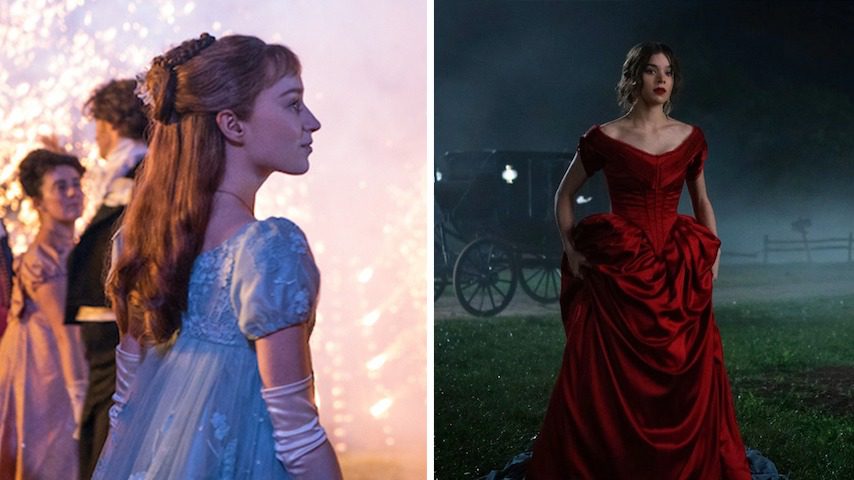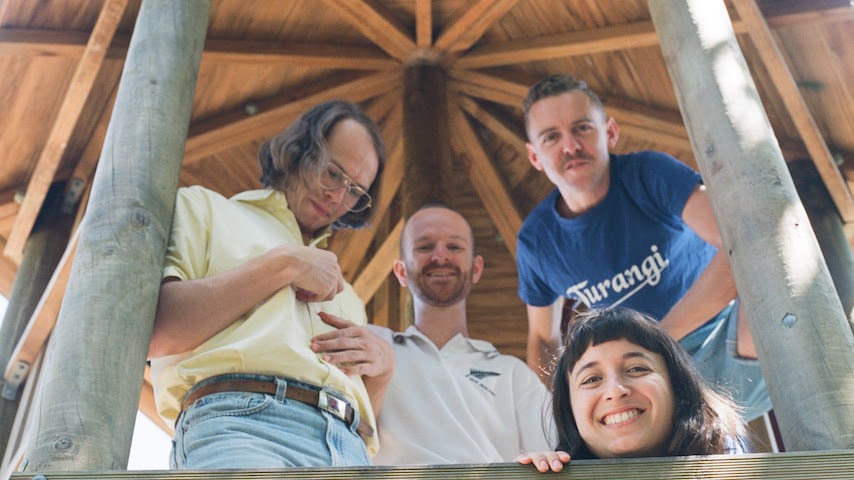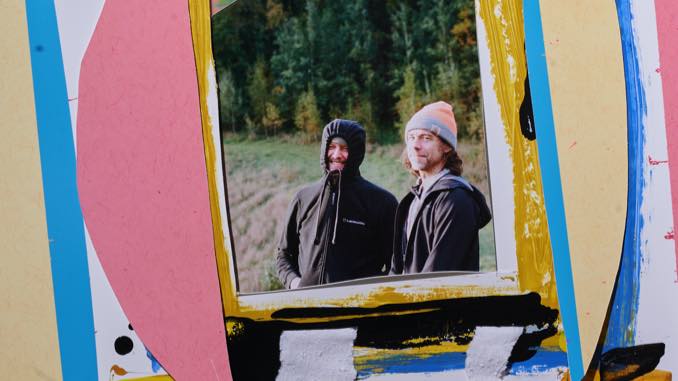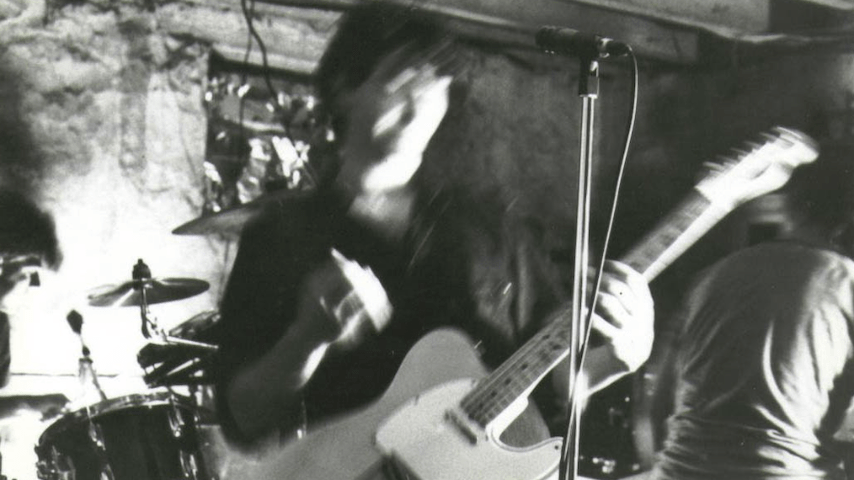It’s the perfect scene: two young lovers dash into the night, breathless, laughing as they abandon the real world together. Tonight marks the first night of their honeymoon, and for a couple living in Regency-era London, it’s a freeing experience for the both of them. The skies open, soaking the couple’s fine evening wear. Again, they laugh. As they waltz into a stone pavilion, sheltered from the rapture, a sweeping arrangement of strings embraces their adoration. The melody, however, is no suite by Bach. Nor is it a concerto from Vivaldi, or from any composer that would fit a 19th-century England setting. The song that wraps these lovers together is by Taylor Swift, a cover of a song called “Wildest Dreams” from her 2014 album 1989.
This music genre, 21st-century pop, is not usually matched with period dramas. Period dramas prefer to make their gowned ladies bob to string arrangements from the time period, or, at the very least, scores that sound like they’d be from the time period. Never are they given the chance to twirl to Ariana Grande, be swept off their feet to Taylor Swift, or kick it with Billie Eilish—until shows like Bridgerton and Dickinson. In comparison to the litany of period pieces that have come before these two recent series, the decision to include an anachronistic soundtrack may sound radical, unearthly, or even repulsive. But when handled with grace, as both shows do, these soundtracks can lure us into the world of characters that feel the furthest from us.
Sofia Coppola’s luxuriously gauche Marie Antoinette tried to popularize this idea of anachronistic music in 2006. A lot of folks hated it: on discussing the music, like the costumes and the production design, Time Out said the soundtrack was “hip—but never history.” The AV Club argued the soundtrack felt “shoehorned in.” By adding Bow Wow Wow and New Order to Antoinette’s story, like tossing a pair of lilac Chuck Taylor’s in her closet, Coppola had devised some radical idea that could erase history. While she had certainly taken a risk, it didn’t seem to pay off to those who watched it upon release—even though it should have. Coppola’s soundtrack was loaded with hits galore, giving us a cinematic side to Antoinette that, while not by-the-books, was filled with coquettish fun.
Thankfully, a second chance came with Netflix’s Bridgerton, released 15 years later, accompanied by the same color palette and gaudy interiors. In the show’s first episode, the orchestra plucks out Ariana Grande’s seminal “Thank U, Next,” remixing the spectacles of 1813 with a smashing 2010’s twist. As the swarms of pearly-dressed guests roll into the very first ball of the season, the Vitamin String Quartet rendition of the pop tune escorts them. Now, I’d be hard pressed to believe that Daphne Bridgerton had any stakes in the Pete Davidson drama surrounding the release of “Thank U, Next,” but no song could encapsulate her dismissive tone towards those vying for her affection better than Grande’s. As she shifts from suitor to suitor, growing more and more displeased with their affections, her sentiments parallel the song with striking similarity.
Bridgerton isn’t based on a true story. It isn’t anything close to a history lesson like Marie Antoinette (then again, is Marie Antoinette really a history lesson?). Those critiques of Coppola’s film, that it was “hip—but never history,” would not apply here, because the show never aims for history. Bridgerton is a fictional romance in Regency-era London, which still, apparently, could restrict it to music made only pre-1800s tunes. But in using contemporary songs steeped in flirtation, still dripping with hot gossip, Bridgerton likens its characters to its audience. There’s little to match the girlish wave of exhilaration after that first needle drop in Bridgerton—“Oh my gosh, is this Ariana Grande?”—and the building anticipation of which pop song could come next.
There is another series that succeeds, just as Bridgerton does, at implementing anachronistic music: Alena Smith’s Dickinson. Like Marie Antoinette, Dickinson follows a loosey-goosey recreation of a wild, historical heroine. Emily Dickinson’s (Hailee Steinfeld) unconventional story warrants innovative storytelling, including a soundtrack that rebels against any preconceived notions of the poet. If Smith wants to prove that Emily is no pure, flowery recluse of a girl, she’s going to need songs like “all the good girls” by Billie Eilish and “Shut Up Kiss Me” by Angel Olsen.
Dickinson also shares a euphoric moment similar to Bridgerton’s “Thank U, Next.” As Emily and her best friend/lover Sue (Ella Hunt) ready themselves to slink into a male-only lecture about volcanoes, jumping into trousers and bowler hats, “Boys” by Lizzo bumps along with their excitement. Bouncing from each different masculine outfit, Lizzo’s song—though not related to anything 1800s—identically matches the gals’ energy. Emily and Sue are not as finely manicured as other women of the 1800s, meriting a track just as eccentric.
Speaking of songs shared by Emily and Sue, there’s an enchanting appearance of “Your Best American Girl” by Mitski. While Emily experiences a sexual awakening with her best friend, Mitski’s cool indie song jams amidst the pair’s ecstasy. It’s a moment similar to the string rendition of “Wildest Dreams” in Bridgerton—young and in love, and finally, there’s no one to stop them from being together. The buzzing, giddy energy from the couples harmonizes with the dreamy 2010s indie-pop anthems like a fresh beam of sunlight hitting a cool patch of spring flowers. And who better to sing an ode to the pleasure of young women than Mitski or Taylor Swift?
Both of these instances emit a feeling that is reminiscent to that of Marie Antoinette, in Coppola’s film, dashing through the Palace of Versailles as “What Ever Happened?” by the Strokes chases after her. Excused of her queenly duties at a stuffy gala, Antoinette unleashes a royal smile as she flops onto her bed. Freedom, at last. It’s a feeling shared by anyone who’s escaped tiring dinners, family drama, or exhausting group settings, and the unchained alternative hit is as alleviating as Antoinette’s dive into a nap. These ladies may be different from one another, different from us contemporary folks, but some feelings are so universal. Contemporary songs can tie us to these commonalities.
As we’re thrown back into the world of Dickinson in the series’ Season 2 debut, Your Smith’s “Wild Wild Woman” drums over a montage of Emily’s world. It’s a newer indie song, and it grasps Emily’s unapologetic lust for nonconformity like none other. And that’s the thing: though it seems quite radical, anachronistic soundtracks are actually able to ease these characters onto our screens and into our contemporary lives much easier than soundtracks that “follow the rules.” No one was making songs about wild women in the mid-1800s, even though Emily Dickinson was quite the erratic lady. Ultimately, period pieces have every right to a fully-updated catalog of music. There’s an indescribable moment of delight stemming from a needle drop of a favorite 2010s hit, a new banger, or even any familiar tune, and period pieces should not be restricted from this act of unbridled joy.
Fletcher Peters is a New York-based journalist whose writing has appeared in Decider, Jezebel, and Film School Rejects, among other spots. You can follow her on Twitter @fietcherpeters gossiping about rom-coms, TV, and the latest celebrity drama.
For all the latest TV news, reviews, lists and features, follow @Paste_TV.




